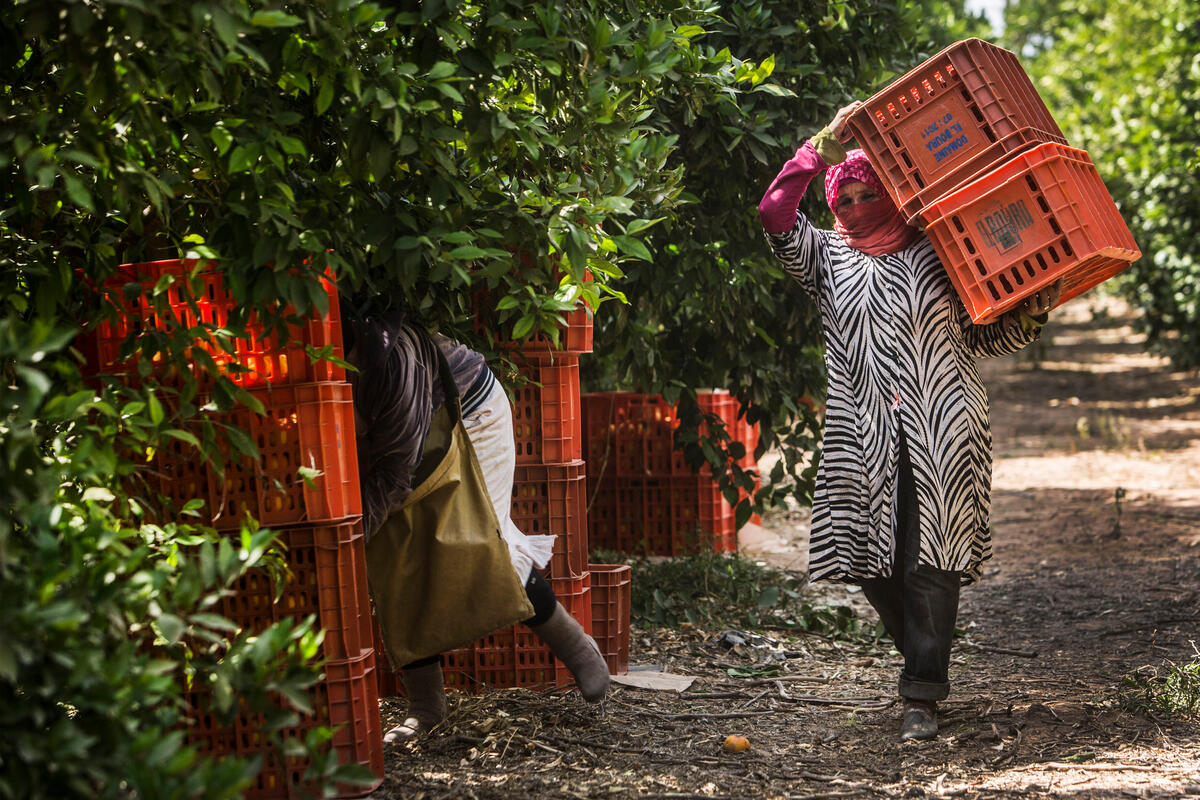Extending social protection to rural populations: Key insights from farmer registries in the Near East and North Africa
20/05/2025

BACKGROUND
The Near East and North Africa region is facing rising poverty and food insecurity, driven by climate change, economic shocks, and prolonged conflicts. These challenges hit rural areas hardest—where most poor people live and where access to services, resilient infrastructure, and decent employment opportunities remains limited.
Agricultural workers, who form a large share of the rural labour force, are often engaged in informal and hazardous jobs. Despite being among the most exposed to economic, environmental, and social risks, they are largely excluded from both contributory and non-contributory social protection systems. Legal exclusion, financial barriers, administrative burdens, and limited awareness reinforce cycles of vulnerability and marginalization. Yet agriculture remains a key sector for employment and sustainable development. It contributes around 14 percent to regional GDP and employs 13 percent of the workforce.
Expanding social protection and promoting the formalization of agricultural work is both a policy imperative and a strategic opportunity. These priorities were reaffirmed in the Ministerial declaration on the future of social protection in the Arab Region in 2021, where leaders committed to extending coverage to all workers- formal and informal- and linking contributory and non-contributory systems to support inclusive job formalization, especially in agriculture.
In this context, digital innovation is playing a growing role in strengthening social protection systems. Several countries are advancing digital farmer registries to modernize agriculture. These registries are key tools for improving sector governance, policy effectiveness, and support to agricultural workers. They provide essential administrative, socioeconomic, and geographic data to enable better targeting and decision-making. When interoperable with social registries, they can power integrated social protection and economic inclusion programmes—promoting policy coherence, sectoral coordination, and informed resource allocation for rural development.
OBJECTIVES
- Present a stocktaking analysis of farmer registries in the region and their implications for rural social protection, as part of the Policy Incubator to Enhance Social Insurance for Agricultural Workers in the Near East and North Africa, launched in 2024 by FAO and ILO.
- Explore the potential of farmer registries to expand social protection coverage and support job formalization, thereby reducing poverty and vulnerability in rural areas.
- Showcase experiences from the region countries, highlight promising practices, and promote knowledge exchange on leveraging digital data systems to drive inclusive, resilient, and sustainable agrifood systems transformation.
AGENDA (Cairo time)
Moderators
Ms. Asmaa ElDeeb, Technical Programme Specialist, FAO Regional Office for Near East and North Africa
Ms. Dalia Abulfotuh, Economist, FAO Regional Office for Near East and North Africa
14:00 – 14:10 | Opening and welcome
Ms. Dalia Abulfotuh, Economist, FAO Regional Office for Near East and North Africa
14:10 – 14:20 | Setting the stage
Ms. Greta Campora, Social Protection and Economic Inclusion Specialist, Stocktaking analysis of farmer registries in the region and their implications for rural social protection
14:20 – 15:10 | Panel discussion
15:10 – 15:20 | Q&A
- Mr. Faress Yahya, Head of the Farmers´Social Protection Division, Ministry of Agriculture, Morocco.
- Ms. Rima Hajjar, Head of Economic and Marketing Service and Focal point for Farmers' Registry in Lebanon, Ministry of Agriculture, Lebanon.
- Mr. Ahmad Ramadan, Head of Planning Department, Ministry of Agriculture, Lebanon.
- Mr. Khalid Al Heesa, Secretary General Assistant for Projects and Rural Development, Ministry of Agriculture of Jordan.
15:20– 15:30 | Closing remarks
Ms. Valentina Barca, Independent Social Protection and Registries Specialist.
